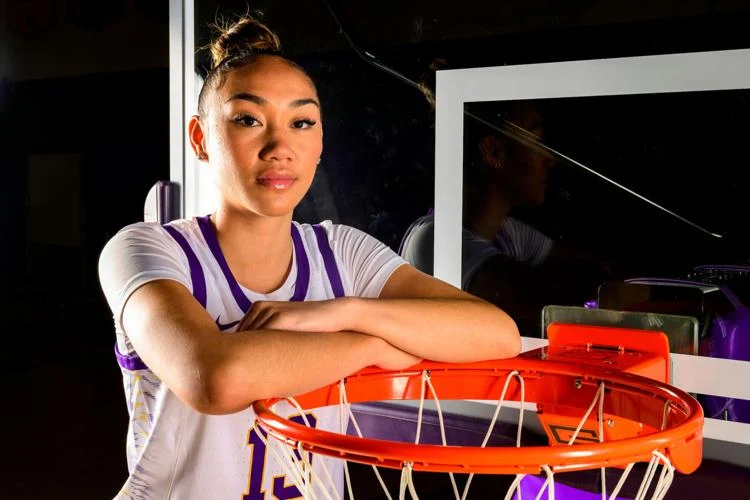LSU Women’s Basketball Player Last-Tear Poa Files Lawsuit Against U.S. Citizenship and Immigration Services

LSU women’s basketball player Last-Tear Poa has taken legal action against U.S. Citizenship and Immigration Services (USCIS) following the agency’s denial of her P-1A Athlete visa application, a visa designated for internationally recognized athletes. The decision to file a lawsuit in the Middle District of Louisiana comes as a critical move for Poa, who has been a valuable addition to LSU’s roster and faces uncertainty regarding her eligibility to remain in the U.S. and compete in collegiate athletics.
Poa, a standout guard originally from Australia, played a crucial role in LSU’s success last season and is widely regarded as a promising talent. Her journey to LSU reflects a remarkable athletic path, with accomplishments that led her to earn an opportunity at one of the nation’s top college basketball programs. However, her career now faces a significant challenge due to the visa denial. According to On3, sources close to Poa revealed that her P-1A application was rejected by USCIS, putting her ability to continue her college career in jeopardy.
The P-1A visa is typically issued to athletes of exceptional skill who have garnered international recognition in their sport, allowing them to compete in the United States. College athletes like Poa often rely on this visa to maintain their status as student-athletes, ensuring they can participate in their respective sports without immigration barriers. Poa’s denial raises questions about how the criteria are applied, particularly when it comes to collegiate athletes who may not yet have fully established international careers but possess significant potential.

In her lawsuit, Poa’s legal team argues that USCIS’s denial was unjustified and that she meets the qualifications for the P-1A visa based on her achievements and current role in the NCAA. They contend that her talent, contributions to LSU, and international experience in Australian basketball make her a legitimate candidate for the visa. The lawsuit seeks to reverse the denial and secure Poa’s status so she can continue competing without interruption.
For LSU and the broader collegiate athletic community, Poa’s case highlights an ongoing issue faced by international student-athletes who rely on visas to compete and study in the United States. LSU has expressed support for Poa as she navigates this legal process, with both teammates and fans rallying around her. The case not only impacts Poa’s career but could set a precedent affecting how visa applications for collegiate athletes are evaluated in the future.
As Poa and her legal team prepare for the legal proceedings, they remain hopeful for a resolution that allows her to continue playing and representing LSU. For Poa, this lawsuit is about securing her future and continuing to pursue her passion for basketball, a journey that began in Australia and led her to the United States.








